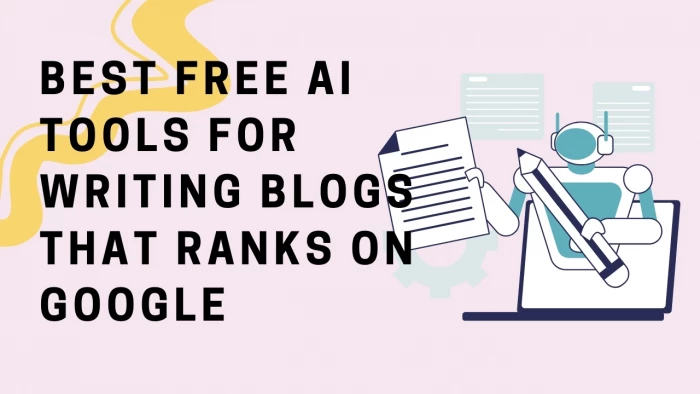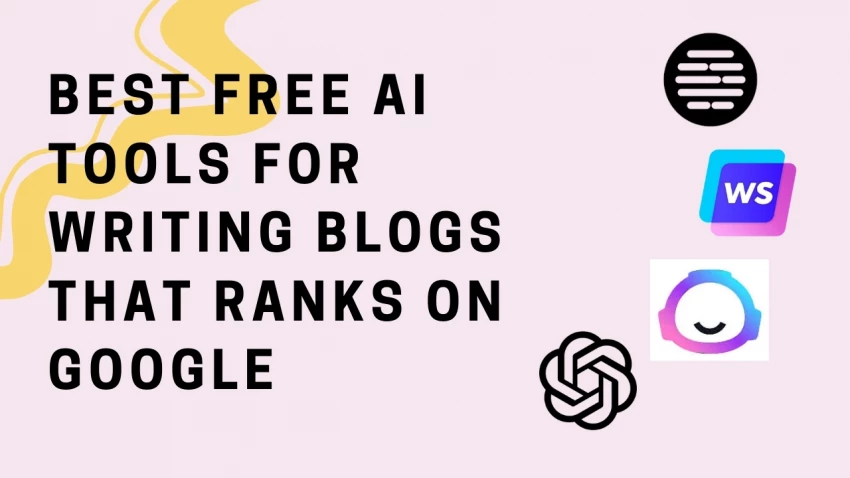

AI writing tools are no longer a novelty—they’re essential. Whether you’re a solo blogger or running a content team, the right AI tool can save hours and help your articles rank higher on Google. But the key isn’t just generating text. It’s knowing how to optimize content, link strategically, and structure posts for both readers and search engines.
In this guide, I’ll break down the best free AI tools for blogging, what to watch out for, and how to use them to build posts that actually rank.
Google rewards helpful, original, and well-structured content. That means a blog post written with AI can rank—if you optimize it properly. On Quora, content creators are already debating whether an AI-written post can make it to page one. The short answer: yes, but only if you avoid fluff, keyword stuffing, and shallow insights.
AI tools can help brainstorm headlines, analyze keywords, or even draft entire articles. But you still need to add your voice, verify facts, and refine the structure to keep readers engaged.
ChatGPT remains the most popular tool for quick drafting, outlining, and brainstorming. Its free version works well for creating blog structures, generating FAQs, or simplifying complex ideas. Many bloggers on Reddit’s Blogging community agree that ChatGPT shines when you guide it with specific prompts instead of vague requests.
Pro tip: Use ChatGPT to create your blog outline and meta descriptions. Then refine the draft by adding internal links to older blog posts on your site and external links to high-authority sources.
Writesonic offers an AI blog post generator that produces SEO-optimized drafts. It also has integrations with Surfer SEO, making it ideal for keyword-based writing.
How to use it: Generate blog drafts, then review keyword density. Make sure your posts don’t feel over-optimized. Google’s Helpful Content Update penalizes content written for bots instead of people.
Jasper (formerly Jarvis) is more advanced but offers free credits for new users. It’s great for long-form blogging and team collaboration.
Best feature: Jasper’s “Boss Mode” lets you command the AI more directly, making it useful for scaling blogs quickly.
AI is only as good as the prompt you feed it. That’s why many bloggers rely on curated prompt libraries. On Reddit’s Prompt Genius community, creators share powerful SEO prompts that help AI generate keyword-rich, well-structured posts.
Instead of typing “Write a blog about SEO,” try prompts that ask AI to include H2 subheadings, FAQs, schema-friendly structures, and keyword clusters. This ensures your draft looks like a Google-ready blog, not just a generic essay.

Google uses internal links to understand your site’s structure. Every blog post should link to at least 2–3 older posts on your website. For example, if you’re writing about SEO tools, link to your older guide on keyword research.
External links to authoritative sources like Google Search Central or industry blogs boost credibility. Just don’t overdo it—two to three external links per article are enough.
Your primary keyword should appear in the title, introduction, at least one H2, and naturally throughout the content. Avoid keyword stuffing—it makes your blog unreadable and can hurt rankings.
Thin content doesn’t rank anymore. AI can generate 500 words in seconds, but Google prefers detailed posts (1500+ words) that fully answer a query. Expand your posts with FAQs, examples, and case studies.
Google evaluates Expertise, Experience, Authoritativeness, and Trustworthiness (E-E-A-T). That means your AI-assisted blog still needs your insights, your experience, and your unique perspective.
AI tools can help you scale your blogging process, but they aren’t a shortcut to rankings. The best results come from combining AI with your knowledge, SEO best practices, and thoughtful linking strategies.
If you’re strategic—using tools like ChatGPT, Writesonic, Jasper, and SEO prompt libraries—you’ll create posts that not only rank but also keep readers coming back. The future of blogging isn’t man versus machine. It’s man plus machine.
Be the first to post comment!